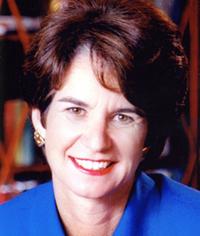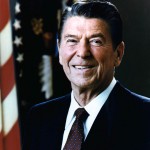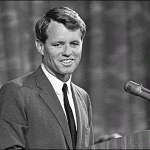By Stephanie Doctrow, RP Staff, on Tue Jun 28, 2011 at 6:21 PM ET If you read nothing else today, read this. Former Washington Post reporter and Pulitzer Prize winner Jose Antonio Vargas writes of his life in America as an undocumented immigrant. [NY Times]
A little humor to brighten your day: The New Yorker contemplates how Al Qaeda can rebrand itself for the twenty-first century. [New Yorker]
Girl power! Supreme Court Justice Sandra Day O’Connor discusses overcoming sexism as a law student and her path to an amazing career. [The Atlantic]
Something that will need some major recovery after the presidential election: Jon Huntsman’s waistline. Apparently he’s a big fan of street food, namely taco trucks. [Esquire]
How did Greece’s economic situation blow up into a mess that is affecting all of Europe? [Newsweek]
By Robert Kahne, RP Staff, on Tue Jun 28, 2011 at 3:30 PM ET
I went to see Cars 2 over the weekend. It is terrible. I don’t understand how Pixar, who up until this point had never made a bad film, did such a shoddy job with this film. The best part of Cars 2 was the preview for their next film, Brave, which will hit theaters next summer. You can watch the trailer at the link. [The Movie Blog]
The film world lost a key member last week when Peter Falk died. Falk was probably most famous for playing Columbo on television, but he earned back to back Best Supporting Actor nominees, and was also in two of my favorite films: The Princess Bride and It’s a Mad Mad Mad Mad World. [Film Junk]
Clint Eastwood has been slated to (re-)re-make A Star Is Born with Beyonce Knowles starring. The original remake (OXYMORON ALERT) starred Barbara Streisand and Kris Kristofferson. Which may be an even more random pairing than Beyonce and DiCaprio. [Guardian]
As a kid, I loved the Lois Lowry book The Giver. A film adaptation is apparently in the works with Jeff Bridges playing the old guy who feels everybody’s pain. I am excited about this. [/Film]
One time I asked my room mate what his favorite movie was. He thought for a second and replied “Quintin Tarantino.” I echo that sentiment–all of his films are amazing and I love everything he has ever directed. His next picture is entitled Django Unchained and is set during slavery in Mississippi. It’s the story of an escaped slave who meets with a German dentist-turned-bounty hunter and tries to rescue his wife. How Tarantino-esque! Christoph Waltz, who shined bright as Hans Landa in Tarantino’s last picture Inglourious Basterds will play the bounty hunter, and news has been released saying Jamie Foxx will play the escaped slave. I am excited about this, too. [Deadline]
Joel Courtney has received rave reviews for his work as the kid from Super 8. He has now been tapped to play Tom Sawyer in an upcoming adaptation of the Mark Twain classic. Since our last viewing of these stories involved Jonathan Taylor Thomas and Brad Renfro, I am also excited about this. [Movie Line]
By Kristen Hamilton, RP Staff, on Tue Jun 28, 2011 at 12:00 PM ET
Wow. It is almost here. In two more days, I will board my first flight ever and embark upon an unforgettable adventure. As I prepare to leave for Paris later this week, I am reminded of how much I despise packing. I was forewarned to not shop before leaving for Paris, but I could not resist consistently stalking Forever 21, Urban Outfitters, and American Apparel throughout the summer in hopes of turning my college-girl wardrobe, i.e. the typical t-shirts and jeans combo, into Parisian chic. Apparently, French fashion is a big deal (duh?!), so let’s just say I had to make some new additions to my already overbearing wardrobe. Outside of worrying about my hair (don’t judge me; I hear France has hard water!), one of my biggest concerns is looking fashionably cute. Vain, right? I know. But I can’t help it – I am going to the fashion capital of the world.
Read the rest of…
The Politics of Fashion: An American Girl in Paris, Part 1
By Stephanie Doctrow, RP Staff, on Tue Jun 28, 2011 at 10:00 AM ET Rest in peace, Nick Charles. CNN’s first sportscaster died on Saturday after a two-year struggle with bladder cancer. [CNN]
New York legalized gay marriage over the weekend, and you better believe that Twitter went crazy. Here’s a list of the 11 best celebrity tweets from the weekend. [Time]
Speaking of gay marriage… Jon Stewart let the New York Senate have it when, during the time they could have been working on passing gay marriage, they debated about making sweet corn the state vegetable. [NY Magazine]
Lindsey Lohan recently let cameras into her house to film a commercial for a penny auction website. It turns out, LiLo’s house is decorated with… photos of LiLo. [Gawker]
A viral news story this week reported that Jews couldn’t fly on Delta Airlines’ new flights to Saudi Arabia, and the story was completely untrue. Here’s how the story became a sensation. [Poynter Institute]
By Kathleen Kennedy Townsend, on Tue Jun 28, 2011 at 8:30 AM ET

Last week, I wrote about my father, Robert Kennedy, and his critique of Gross Domestic Product (GDP) as the measure of national well-being. He said, “It measures everything except that which makes life worthwhile. And it can tell us everything about America except why we are proud that we are Americans.”
Had my father lived, we might have started work a lot sooner on truer ways to measure the state of the nation. Sadly, that did not happen. His critique of the GDP was forgotten. Instead, other values came to govern American life.
In 1968, David Frost asked both Ronald Reagan and my father to speak on the purpose of life. Ronald Reagan answered:
 Well, of course, the biologist I suppose would say that like all breeds of animals, the basic instinct is to reproduce our kind, but I believe it’s inherent in the concept that created our country–and in the Judeo-Christian religion–that man is for individual fulfillment; for our religion is based on the idea not of any mass movement but of individual salvation. Each man must find his own salvation; I would think that our national purpose in this country–and we have lost sight of it too much in the last three decades–is to be free–to the limit possible with law and order, every man to be what God intended him to be. Well, of course, the biologist I suppose would say that like all breeds of animals, the basic instinct is to reproduce our kind, but I believe it’s inherent in the concept that created our country–and in the Judeo-Christian religion–that man is for individual fulfillment; for our religion is based on the idea not of any mass movement but of individual salvation. Each man must find his own salvation; I would think that our national purpose in this country–and we have lost sight of it too much in the last three decades–is to be free–to the limit possible with law and order, every man to be what God intended him to be.
My father said:
 I think you have to break it down to people who have some advantages, and those who are just trying to survive and have their family survive. If you have enough to eat, for instance, I think basically it’s to make a contribution to those who are less well off. ‘I complained because I had no shoes until I met a man who had no feet.’ You can always find someone that has a more difficult time than you do, has suffered more, and has faced some more difficult time one way or the other. If you’ve made some contribution to someone else, to improve their life, and make their life a bit more livable, a little bit more happy, I think that’s what you should be doing. I think you have to break it down to people who have some advantages, and those who are just trying to survive and have their family survive. If you have enough to eat, for instance, I think basically it’s to make a contribution to those who are less well off. ‘I complained because I had no shoes until I met a man who had no feet.’ You can always find someone that has a more difficult time than you do, has suffered more, and has faced some more difficult time one way or the other. If you’ve made some contribution to someone else, to improve their life, and make their life a bit more livable, a little bit more happy, I think that’s what you should be doing.
Ronald Reagan’s views came to dominate the political landscape. Later, when he was asked what he meant by freedom, he described driving up the Pacific Coast Highway in a convertible with the wind blowing through his hair. Here was a man truly doing his own thing, alone.
George Washington and Thomas Jefferson had nice houses. They could have enjoyed contented private lives. But it was not just about their property.
What Ronald Reagan is remembered for does not reflect what he actually did. Of course, he believed in public engagement. He was a six-term president of the Screen Actors guild, calling union membership a “fundamental human right.” He was governor of California and president of the United States. He spoke eloquently about America as a “shining city on a hill.”
Read the rest of…
Kathleen Kennedy Townsend: The Pursuit of Happiness: What the Founders Meant—And Didn’t
|
The Recovering Politician Bookstore
|











